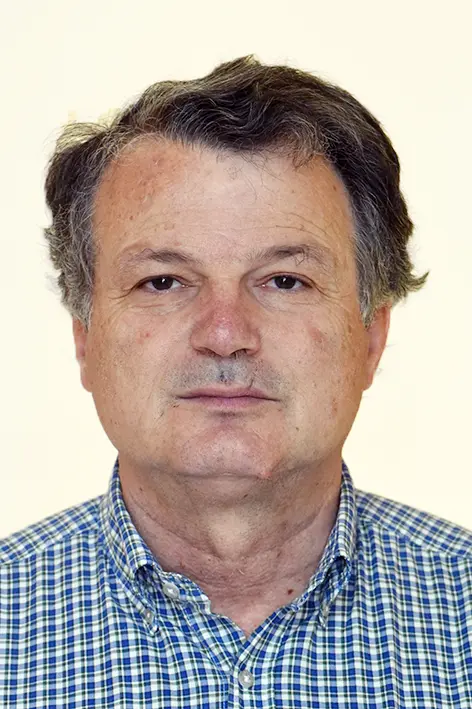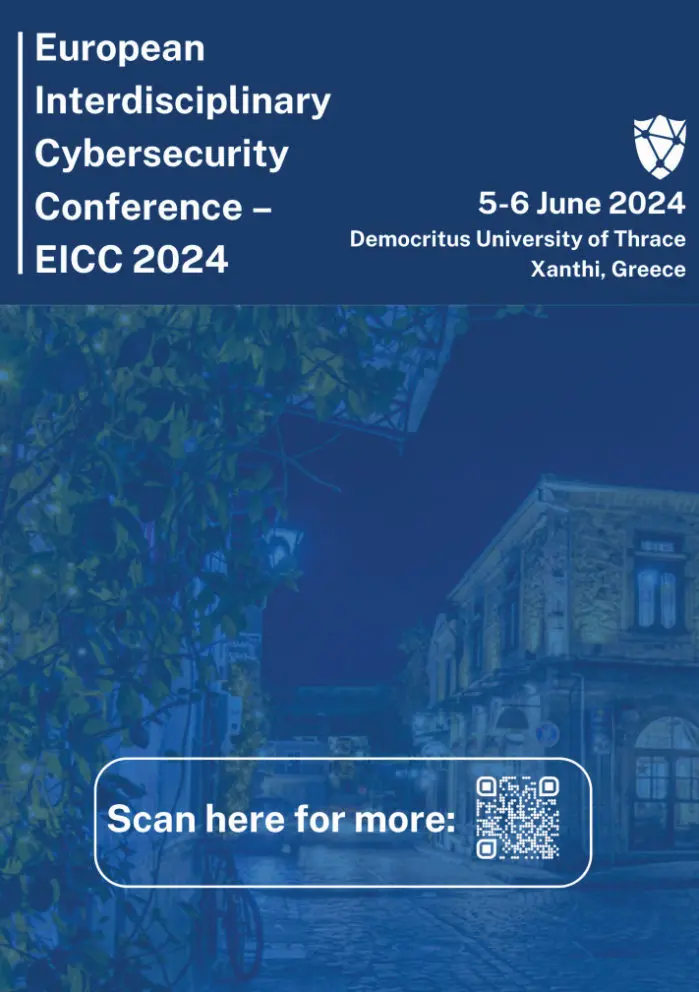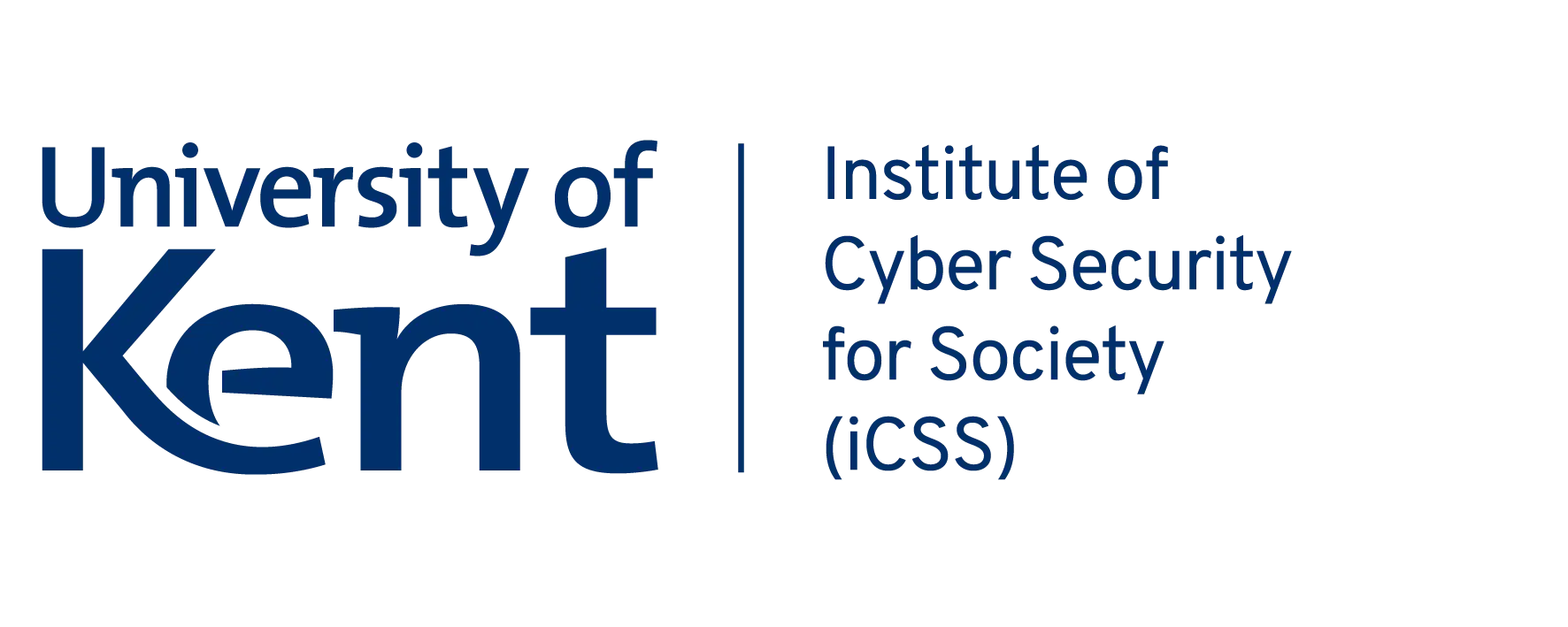
European Interdisciplinary Cybersecurity Conference
Democritus University of Thrace, Xanthi, Greece
About the conference
The European Interdisciplinary Cybersecurity Conference – EICC 2024 aims at establishing a venue for the exchange of information on cybersecurity and its many aspects between academics and practitioners in Europe. EICC was until 2019 known as the Central European Cybersecurity Conference – CECC and has been rebranded to underscore the interdisciplinarity of the conference and broaden its reach. EICC 2024 encourages the dialogue between computer scientists and researchers in all other fields related to cybersecurity, such as behavioral sciences, sociology, criminology, investigations and law. Interdisciplinary contributions are especially welcome.
EICC 2024 is planned as a face-to-face conference.
News
-
5 June 2024
EICC 2024 proceedings have been published in ACM DL.
Special Sessions
Digital Privacy for Industrial Applications – DP4I 2024
Medical Device Security and Privacy – MeDSec 2024
Complex Network Analysis for Cybersecurity – CNACYS 2024
Federated Learning Applications in the Real World – FLARW 2024
Advances in Interdisciplinary Cybersecurity: Insights from Funded Research Projects – CyFRP 2024
Keynote Speakers
-

Steven Furnell
Cyber Security for SMEs - Clear, Consistent and Complete?
Cyber security is clearly an issue for organisations of all sizes and across all sectors. However, the ability to understand and deal with it can very much depend upon the size of organisation and the resources that it has available. Small and Medium-sized Enterprises, or SMEs, are frequently highlighted as facing a particular challenge, which is typically more acute towards the smaller and micro end of the scale. At the same time, they can face fundamental difficulties to even understand the issue and what they ought to be doing about it. Drawing upon an ongoing research project, this presentation examines the nature of information available to those SMEs that may seek to better understand and address their cyber security needs. It presents an assessment of various online sources that SMEs may identify and attempt to use for guidance, and considers the varied coverage, clarity, and completeness of the related resources. The resulting concern is that, rather than addressing their needs, SMEs could end up more confused, stuck, or even misdirected. The discussion also draws upon the views of SMEs themselves, and the specialists that they use for further advice, as well as looking ahead to a new support route that the wider project seeks to provide.
Steven Furnell is Professor of Cyber Security in the School of Computer Science at the University of Nottingham, as well as an Adjunct Professor with Edith Cowan University in Western Australia and an Honorary Professor with Nelson Mandela University in South Africa. His research interests include security management and culture, usability of security and privacy, and technologies for user authentication and intrusion detection. He has authored over 370 papers in refereed international journals and conference proceedings, as well as various books, book chapters, and industry reports. Steve is the UK representative to Technical Committee 11 (security and privacy) within the International Federation for Information Processing, and a board member of the Chartered Institute of Information Security, and a member of the Steering Group for the Cyber Security Body of Knowledge (CyBOK) and the Careers and Learning Working Group within the UK Cyber Security Council.
-

Christos Douligeris
Cybersecurity awareness and training: The CyberSecPro and NERO approaches
The European Union agency for cybersecurity (ENISA) has consistently advocated that the advanced cybersecurity awareness programs are the best way to educate and develop a security-first culture amongst employees on how to mitigate the impact of cyber threats and incorporate activities, resources, and training to foster a cyber security culture. The development of these awareness programs and the associated trainings require a well–structured approach that can only be achieved by the close cooperation of Higher Education Institutions (HEIs) with companies and relevant agencies. In this talk, we will describe an ecosystem consisting of five interrelated frameworks provisioned to offer a cybersecurity awareness program. This program, named NERO, primarily provides SMEs with a Cyber Immunity Toolkit Repository, Cyber Resilience Program, and Cyber Awareness Training via gamification and provides its modules through a user-friendly marketplace. The methodology to evaluate its effectiveness and performance in three use case demonstrations on different domains will be delineated.
Christos Douligeris, currently a professor at the department of Informatics, University of Piraeus, Greece, held positions with the Department of Electrical and Computer Engineering at the University of Miami. He was an associate member of the Hellenic Authority for Information and Communication Assurance and Privacy and the Presideet and CEO of Hellenic Electronic Governance for Social Security SA. Dr. Douligeris has published extensively in the networking scientific literature and he has participated in many research and development projects. He is the co-editor of a book on "Network Security" published by IEEE Press/John Wiley and he is on the editorial boards of several scientific journals as well as on the technical program committees of major international conferences. His recent involvement in EU funded research includes Sauron which addressed the various aspects (including cyberterrorism) of security in Port information systems, CyberSec4Europe, CyberSecPro and CyberSynchrony. His main research interests lie in the areas of communications, networking security, cybersecurity, and the use of technology in all aspects of addressing web science, data analytics, and emergency response operations.
Registration
Author registration
390 EUR
(early bird)
440 EUR
Co-author registration
320 EUR
(early bird)
370 EUR
Second paper
190 EUR
(early bird)
240 EUR
Student attendee
160 EUR
(early bird)
210 EUR
Participation (without accepted paper)
350 EUR
(early bird)
550 EUR
Student authors of full papers, short papers and posters are not eligible for the student registration fee and must pay the regular registration fee.
Early-bird registration fees must be paid on 25 April 2024 or earlier.
Exposition of accepted posters is mandatory.
Important dates
Paper submission deadline (extended)
Author notification
Poster submission deadline
Camera-ready
Call for papers
Scope
The conference is devoted to exploring and presenting original innovative applications, scientific and technological advancements in the field of cybersecurity. Topics for this conference include, but are not limited to:
- Cybersecurity and cyber resilience
- Cyber insurance
- Digital privacy
- Digital currency, blockchains and cybercrime
- Law, investigation, internet jurisdiction and ethics
- Child safety in the cyberspace
- Cyber forensics
- Surveillance, interception, blocking and sovereignty
- Cyber warfare
- Network security
- Critical infrastructure security
- Embedded systems security
- Business continuity and disaster recovery
- Information security governance
- Security management
- Cloud security
- Internet of things security
- Big data and cybersecurity
- Healthcare information security
- Software development security
- Cyber-physical systems security
- Adversarial machine learning
- Trust management
Publication
EICC 2024 proceedings will be published by Association for Computer Machinery (ACM) in the ACM Digital Library within its International Conference Proceedings Series (ICPS).
Authors of accepted papers will be invited to submit extended versions to a Special Issue of the International Journal of Information Security (ISSN 1615-5262/1615-5270) Special Issue on Interdisciplinary Perspectives for SocioTechnical Cybersecurity Threats. The special issue is complemented by an Open Call.
Submission Guidelines
The official language of the conference is English. Papers are limited to 8 pages, up to 2 additional pages with mandatory surcharges.
All papers must be original and not simultaneously submitted to another journal or conference. The following paper categories are welcome:
Full papers reporting on original research findings
(5-8 pages)
Short papers reporting on original research findings
(2-4 pages)
Posters reporting on original research findings
(1-2 pages)
The conference will offer a Best Paper Award of 200 GBP, Best Student Paper Award of 100 GBP, and Best Poster Award of 50 GBP. The awards will be sponsored by the Institute of Cyber Security for Society (iCSS), University of Kent (UK).
The awards will be conferred to the author(s) of awarded papers/posters who will be present at the conference. The decision criterion will consider both the paper/poster quality and the oral presentation/printed poster quality.
Papers submitted to EICC 2024 have to use the ACM SigConf template. Please, read template instructions carefully before submitting the paper. The use of the
Latex
(
Word users: For peer review, use the two-column template. Keep in mind that you will need to submit the paper in the one-column template to TAPS after acceptance. The final paper will be published in a two-column format.
Latex users: Use only the two-column template (first line in the document: \documentclass[sigconf]{acmart}). Keep in mind that TAPS supports only specific packages.
The quality of the research papers will be assessed based on its originality, significance and clarity.
All submitted research papers will undergo a double-blind reviewing process. Please, make sure that submitted papers do not contain author names or obvious self-references. Please note that the page limit applies to camera-ready papers with author names included and not the submitted anonymized version.
Each paper will be reviewed by 2-3 reviewers. Afterwards, a discussion will be held by the chairs and reviewers to determine the outcomes of the peer-review.
Authors of accepted posters should prepare A0 sized posters (portrait) for the poster exhibition. Other designs may be considered.
Submission of a paper / poster implies that at least one of the authors will register and present the paper / poster at the conference if the paper / poster is accepted. If an author has more than one accepted paper / poster, each additional accepted paper / poster costs the same as online regular registration fee.
Submit papers using EICC 2024 submission system.
Full papers can exceed the page limit by a maximum of 2 pages. Each additional page above the page limit will be charged 50 EUR on top of the registration fee.
Call for special sessions
EICC 2024 is inviting proposals for Special Sessions. The typical goal of a special session is to present and discuss in a thorough and more narrow manner a specific aspect of cybersecurity and its interdisciplinary nature. EICC 2024 provides special session organizers with the opportunity to publish accepted special session papers as part of its conference proceedings. To be included in the EICC 2024 proceedings, special session papers must follow the conference submission guidelines and undergo the same rigorous reviewing process as conference papers.
Important dates
Submission deadline
Acceptance notification
Submission guidelines
The official language of EICC 2024 and its special sessions is English.
Special sessions may welcome full and/or short papers. Special session chair(s) can co-author at most one special session paper.
Submit special session proposals via email eicc@um.si.
Special session proposals should include:
Committees
Conference chair
Shujun Li,
University of Kent (UK)
Program committee co-chairs
Kovila Coopamootoo,
King's College London (UK)
Michael Sirivianos,
Cyprus University of Technology (Cyprus)
Program committee
Habtamu Abie,
Norwegian Computing Centre (Norway)
Laurent Aufrechter,
Thales (France)
Niyati Baliyan,
Indian Institute Of Technology, Roorkee (India)
Jurlind Budurushi,
Qatar University (Qatar)
Luca Caviglione,
IMATI - CNR (Italy)
Michal Choras,
ITTI (Poland)
Salvatore D'Antonio,
University of Naples 'Parthenope' (Italy)
Luca Davoli,
University of Parma (Italy)
Patrizio Dazzi,
University of Pisa (Italy)
Constantinos Djouvas,
Cyprus University of Technology (Cyprus)
Changyu Dong,
Newcastle University (UK)
Matthew Edwards,
University of Bristol (UK)
Tobias Eggendorfer,
Agentur für Innovation in der Cybersicherheit (Germany)
Virginia Franqueira,
University of Kent (UK)
Damjan Fujs,
University of Ljubljana (Slovenia)
Steven Furnell,
University of Nottingham (UK)
Dieter Gollmann,
Hamburg University of Technology (Germany)
Petra Grd,
University of Zagreb (Croatia)
Nils Gruschka,
University of Oslo (Norway)
Mordechai Guri,
Ben-Gurion University (Israel)
Piroska Haller,
University of Medicine, Pharmacy, Sciences and Technology of Tg. Mures (Romania)
Marko Hölbl,
University of Maribor (Slovenia)
Panagiotis Ilia,
Cyprus University of Technology (Cyprus)
Pedro Inácio,
Universidade da Beira Interior (Portugal)
Martin Gilje Jaatun,
University of Stavanger (Norway)
Georgios Karopoulos,
European Commission, Joint Research Centre (Italy)
Sokratis Katsikas,
Norwegian University of Science and Technology (Norway)
Stefan Katzenbeisser,
University of Passau (Germany)
Peter Kieseberg,
St. Pölten University of Applied Sciences (Austria)
Jean-Francois Lalande,
CentraleSupélec / Inria (France)
Albert Levi,
Sabanci University (Turkey)
Wenjuan Li,
The Hong Kong Polytechnic University (China)
Shigang Liu,
Swinburne University of Technology (Australia)
Bo Luo,
University of Kansas (US)
Brad Malin,
Vanderbilt University (US)
Lorenzo Mannocci,
University of Pisa (Italy)
Evangelos Markatos,
University of Crete (Greece)
Peter Mayer,
University of Southern Denmark (Denmark)
David Megias,
Internet Interdisciplinary Institute (IN3) / Universitat Oberta de Catalunya (Spain)
Weizhi Meng,
Technical University of Denmark (Denmark)
Rodrigo Miani,
Universidade Federal de Uberlândia (Brazil)
Anže Mihelič,
University of Maribor (Slovenia)
Aleksandra Mileva,
University Goce Delcev (North Macedonia)
Pal-Stefan Murvay,
Politehnica University of Timisoara (Romania)
Mirco Musolesi,
University College London (UK)
Nicola Paoletti,
King’s College London (UK)
Sebastian Pape,
Social Engineering Academy GmbH (Germany)
Sergio Pastrana,
Universidad Carlos III de Madrid (Spain)
Kaja Prislan Mihelič,
University of Maribor (Slovenia)
Nikos Salamanos,
Cyprus University of Technology (Cyprus)
Cigdem Sengul,
Brunel University (UK)
Siamak Shahandashti,
University of York (UK)
Gerardo Simari,
Universidad Nacional del Sur and CONICET (Argentina)
Kai Simon,
Fraunhofer-Gesellschaft (Germany)
Florian Skopik,
AIT Austrian Institute of Technology (Austria)
Hung-Min Sun,
National Tsing Hua University (Taiwan)
Yuqiong Sun,
Facebook (US)
Igor Tomičić,
University of Zagreb (Croatia)
Nikolas Tsapatsoulis,
Cyprus University of Technology (Cyprus)
Ersin Uzun,
Rochester Institute of Technology (US)
Steffen Wendzel,
Worms University of Applied Sciences (Germany)
Christos Xenakis,
University of Piraeus (Greece)
Nicola Zannone,
Eindhoven University of Technology (Netherlands)
Aleš Završnik,
Institute of Criminology at the Faculty of Law Ljubljana (Slovenia)
Organizing chair
Pavlos Efraimidis,
Democritus University of Thrace (Greece)
Organizing committee
George Drosatos,
Athena Research Center (Greece)
Marios Anagnostopoulos,
Aalborg University (Denmark)
Steering committee
Igor Bernik,
University of Maribor (Slovenia)
Bela Genge,
University of Medicine, Pharmacy, Sciences and
Technology of Tg. Mures (Romania)
Joerg Keller,
FernUniversitaet in Hagen (Germany)
Blaž Markelj,
University of Maribor (Slovenia)
Aleksandra Mileva,
University Goce Delcev (North Macedonia)
Wojciech Mazurczyk,
Warsaw University of Technology (Poland)
Simon Vrhovec,
University of Maribor (Slovenia)


